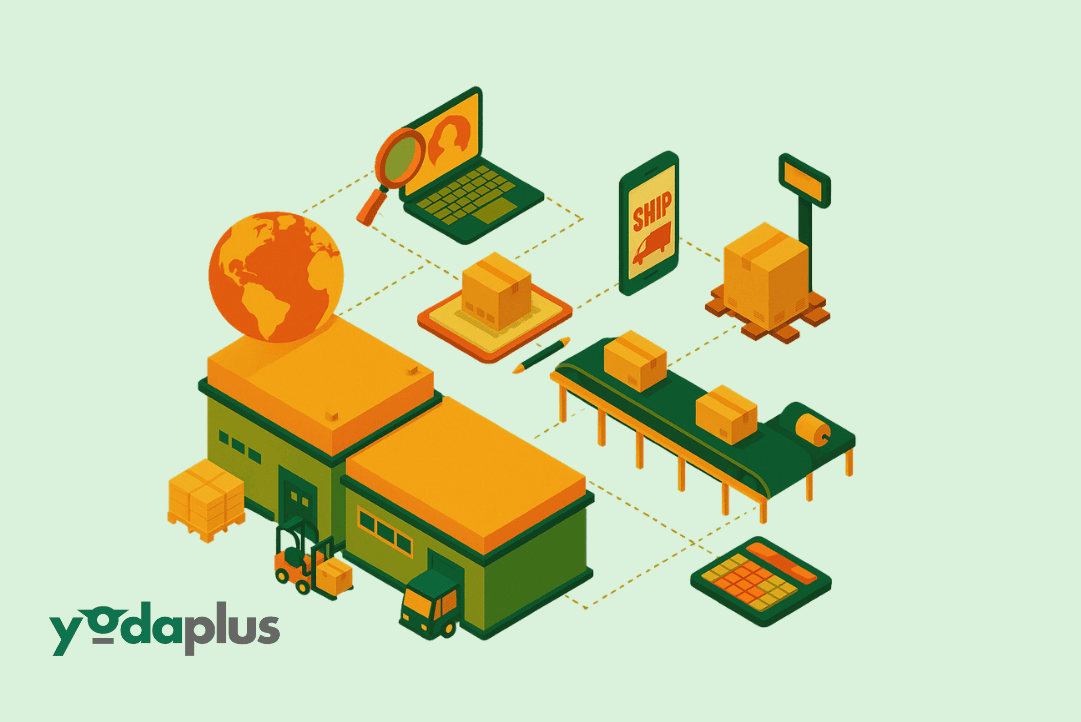
How Agentic AI Learns from Feedback Loops in Supply Chain
November 3, 2025 By Yodaplus
Every decision in the supply chain, from inventory checks to delivery updates, creates data. What if that data could teach systems to improve themselves? That is exactly what Agentic AI does. In the world of retail supply chain digitization, feedback loops are more than just performance tracking. It is a learning process. AI agents observe how users interact with systems, study outcomes, and use that knowledge to make better decisions in the future. Over time, these feedback loops help them become more accurate, faster, and adaptive.
This blog explores how feedback loops shape Agentic AI frameworks, how they enhance supply chain technology, and why they are important for retailers that want smarter operations.
Understanding Feedback Loops in Agentic AI
A feedback loop is a continuous cycle of action, observation, learning, and improvement. In Agentic AI applications, every decision contributes to that cycle.
For example, if an AI agent in a warehouse predicts the wrong delivery time because of incomplete inventory data, it analyzes the mistake and improves how it checks stock levels next time. Over hundreds of similar cases, the agent becomes more dependable.
In retail supply chain software, this process helps reduce human errors, improve timing, and make decision-making faster and more consistent.
Why Feedback Loops Matter in Retail Supply Chains
Retail supply chains connect many moving parts: inventory, logistics, payments, and customer service. When Agentic AI receives feedback from each stage, it learns what works best.
If a certain route often causes delays, the agentic framework studies previous data, finds the cause, and recommends better alternatives. Over time, it learns patterns and improves efficiency across the supply chain.
This transforms retail supply chain management from a reactive process into a proactive one, where potential issues are predicted and prevented before they disrupt operations.
How Agents Improve with Experience
The strength of Agentic AI lies in its ability to learn continuously. Each agent starts with clear goals such as reducing delivery time or optimizing warehouse operations. Through constant feedback, it becomes smarter and more efficient.
Here is how the learning process works:
-
Observation: The system tracks what happens after each decision.
-
Evaluation: It measures the outcome against the expected result.
-
Adjustment: It updates its internal model for better performance next time.
This ongoing cycle helps create smarter supply chain technology that can adapt to seasonal demand, new regulations, or supply disruptions without heavy human intervention.
From Static Automation to Dynamic Learning
Older retail supply chain automation software could only follow predefined instructions. Once programmed, it did not change its behavior. Agentic AI takes automation to the next level by giving systems the ability to learn and adapt.
For instance, if an AI agent notices that fragile goods are frequently damaged during shipping, it analyzes handling records, identifies the risky process, and suggests safer packaging or routes. The next time, it automatically applies that knowledge to similar cases.
This ability to self-correct makes agentic AI platforms more flexible and reliable. They do not just execute commands; they evolve based on experience.
Integration Across Digital Ecosystems
Modern organizations rely on multiple systems such as ERPs, WMS, and IoT-enabled sensors. As retail supply chain digital transformation progresses, Agentic AI frameworks can unify these systems through continuous learning.
They analyze data from ship documents, warehouse records, and sales reports to detect inefficiencies. Integration with platforms built on MCP use cases or LangChain vs MCP setups allows agents to interact across software layers and apply insights in real time.
This creates connected intelligence across retail and supply chain operations where every system contributes to the learning process.
The Future of Learning Systems
Feedback loops make AI systems more explainable and dependable. In retail supply chain solutions, they help:
-
Improve forecasting accuracy
-
Prevent repetitive manual errors
-
Enhance collaboration between departments
-
Enable faster responses to disruptions
As agentic AI capabilities grow, retail and logistics companies will shift from static automation to intelligent decision-making. These systems will not only act on data but also understand the reasons behind each outcome.
Conclusion
Agentic AI learns in the same way people do—by reflecting on feedback and improving with experience. In retail supply chain digitization, these loops transform simple automation into a learning ecosystem that continuously gets better.
By using frameworks like the AI agentic framework or developing Agentic AI applications, businesses can create adaptive systems that respond to change and make smarter decisions. This is how the future of retail technology solutions will look—intelligent, connected, and always learning.